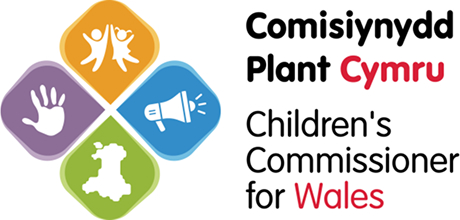Every child in Wales has the right to the best possible health, under Article 24 of the United Nations Convention on the Rights of the Child (UNCRC). Over several years, and increasingly since the pandemic, we’ve been hearing concerns about an issue which carries a risk of long-term harms to health for children and young people – the use of e-cigarettes / vapes.
Concerns about e-cigarettes / vapes are raised with me by children and young people, and the adults who care for them, at most of the visits and engagement meetings I attend.
Due to the potential long-term harms to health, including the nicotine content of some devices, vaping carries a risk of harm and addiction for children and young people. There is also evidence that it is impacting children and young people’s education and wellbeing.
Children and young people are rightly highly concerned about the health impacts, the availability and prevalence of e-cigarettes / vapes. Professionals who work with children and young people have provided us with an insight into the reality of how children are using vapes and the effect it’s having on these young lives.
What do we know?
Data from the School Health Research Network (SHRN) survey of secondary school ages young people shows that, in 2023:
- Over a quarter (25.7%) of young people reported having ever tried an e-cigarette (up from 20.5% in 2021). 45.4% of year 11s have tried vaping.
- 7% of young people reported current (at least weekly) use of e-cigarettes (up from 5.4% in 2021)
- 15.9% of year 11s vape at least weekly (up from 13.6% in 2021).
- In their survey of 12,524 secondary school children in Autumn 2023, Action on Smoking and Health (ASH) Cymru found that 24% had tried vaping, and 7% report being regular vapers.
Some of the other concerning findings from this survey are that:
- 92% of all current vapers use a vape that contains nicotine
- 55% of all current vapers reported using vaping products that are highly likely to be illegal, unregulated products that contain over 600 puffs
- 45% of all current vapers say they cannot go the whole school day without vaping
- 42% of all learners said vapes are easy to get hold of
- 57% say that vaping is common in their year group
- While 37% of current vapers also reported being current smokers; 22% of current vapers reported to be never smokers
What do young people tell us?
In March 2024, we conducted a small focus group with 19 young people in years 8 to 13 at a school in North Wales. Here are some key messages from that session:
What influences young people to vape?
- “There is easy access to vapes – can get them from vape shops and 24 hour shops“
- Young people told us they are influenced by – the colour of packaging; packaging marketed to children; advertising towards children; appealing flavours; school and peer pressure; media; price; easy access; smell; older people pressuring younger; ‘it’s cool’, ‘you get a rush’; ‘fads’; ‘to fit in’; ‘to relieve stress’
- “Young people want more pressure from government on making change”
Do you think young people see vaping as harmful?
- “Harms of vaping not published enough”
- “Young people see vaping as safe alternative to smoking”
- “Some know the risks but ignore them; others do know the risks but do it anyway”. One young person said this is “because of the colours”
- “No one knows the long term effects of vaping as it’s so new”
- “Yes, but not HOW harmful”
What do you think adults understand about vaping?
- “Vaping and its effects aren’t published to people enough to fully understand effects”
- “parents don’t know their children vape and if they do they are unaware of its risk on their children”
- “some [adults] encourage it”
- “Some parents are clueless how addicted their child is”
- “not enough”
- “children know more as they’re around it more”
- “Yes adults know but not how many or how often”
As well as this session with young people, I heard from school staff and professionals working in addiction services. They told me several concerning things including:
- Children coming to secondary school from primary schools addicted to vaping
- Some children are leaving lessons 2 or 3 times to vape.
- Young people walking out of mock exams as not able to cope for that length of time with vaping
- Young people not exhaling so can smoke in the classroom
- Young people using high strength nicotine vapes
- 16/17 year olds not getting asked for ID and buying illegal vapes. Young person can buy them at a higher price due to ‘risk’. 600 puff vape for £1 or £2
- We were told that the local authority’s policy is that there is an automatic exclusion if a young person is found with a vape. We would hope for a more supportive approach.
- New THC Vapes becoming available – these look like normal vapes but have cannabis in. there were also concerns of other harmful drugs being put inside vapes and provided to children.
- Young people accessing snus (a tobacco product used by placing in the mouth, illegal to be sold in the UK) as a nicotine replacement as schools were cracking down on vape use in schools.
- Nicotine replacement therapy – young people aren’t currently able to access for vaping.
What’s happening to protect and support children and young people?
In 2023, Public Health Wales published guidance for schools, aimed at addressing vaping among secondary school-aged pupils. This guidance is welcome and helpfully links actions to the new curriculum in order to support school staff.
Public Health Wales also set up an Incident Response Group, to investigate the rise in vaping among children and young people. The Group published a report in April 2024. Some of the Incident Response Group’s recommendations to Welsh and UK Governments are that:
- There should be support for young people who are nicotine dependent due to vapes. Young people who have a particular need in relation to their dependency should be given access to nicotine replacement therapies (NRT). Replacement therapies are already available for anyone over 12 who is smoking. NRTs may include chewing gum, skin patches, or inhalators.
- Vapes should not be visible at point of sale and vape devices and consumables should only be available in plain, unbranded, standardised packaging.
- Flavour names should be legally restricted to a specified list of basic descriptors.
- Flavours should be restricted to tobacco, mint, menthol and fruit.
- The sale and supply of disposable (single use) devices should be banned.
What are Welsh and UK Governments doing?
In March 2024, UK Government introduced the Tobacco and Vapes Bill to the UK Parliament. The Bill includes proposals to:
- have harsher penalties for those selling vaping products to under 18s, and giving free samples of vaping products.
- make changes in the law to make sure flavours and contents of vaping products are restricted. make vaping products less appealing by restricting what the packaging can look like, and by restricting where in shops vaping products can be displayed.
- phase out the sale of tobacco products by making it illegal to sell tobacco products to anyone born on or after 1 January 2009.
The Bill would make changes in the law to make sure flavours and contents of vaping products are restricted. It would also make vaping products less appealing by restricting what the packaging can look like, and by restricting where in shops vaping products can be displayed.
Welsh Government support the proposed changes in the Bill.
Following the UK General Election in July 2024, the Tobacco and Vapes Bill has now been taken forward by the UK Parliament. It is absolutely vital that children and young people are protected from the harms of tobacco and e-cigarettes (vapes), and I am pleased that this legislation is now being taken forward.
Disposable Vapes ban
Welsh Government has changed the law here to ban disposable vapes because of the environmental impact. This is very welcome, and the ban will come into force in June 2025.
The UK Government will also ban disposable vapes in England. It will be essential for both Governments to enable children and young people to have their views heard as these changes come into force.
Public Health Wales’ work
In 2023, Public Health Wales published guidance for schools, aimed at addressing vaping among secondary school-aged pupils. This guidance is welcome and helpfully links actions to the new curriculum in order to support school staff.
Public Health Wales also set up an Incident Response Group, to investigate the rise in vaping among children and young people. The Group published a report in April 2024. Some of the Incident Response Group’s recommendations to Welsh and UK Governments are that:
- There should be support for young people who are nicotine dependent due to vapes. Young people who have a particular need in relation to their dependency should be given access to nicotine replacement therapies (NRT). Replacement therapies are already available for anyone over 12 who is smoking. NRTs may include chewing gum, skin patches, or inhalators.
- Vapes should not be visible at point of sale and vape devices and consumables should only be available in plain, unbranded, standardised packaging.
- Flavour names should be legally restricted to a specified list of basic descriptors.
- Flavours should be restricted to tobacco, mint, menthol and fruit.
- The sale and supply of disposable (single use) devices should be banned.
What we will be doing
We’ll continue to listen to children’s experiences and will help make sure professionals who work with children are aware of Public Health Wales’s useful guidance for schools on the topic.
We’ll also keep pushing the Welsh Government to do all it can to implement the recommendations of Public Health Wales’ Incident Response Group.


